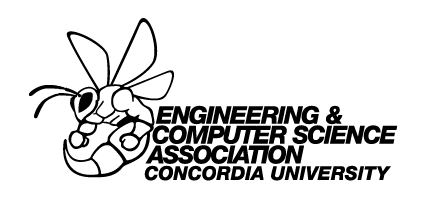
The campaign period lasts from Jan. 14 to Jan. 28, with executives from the faculty association visiting around 20 classrooms a day to garner support for the vote. The polling itself will span from Jan. 28 to Feb. 14 where students can choose to endorse the move for accreditation or vote against it.
The entire procedure for the ECA in its effort to achieve official autonomy from Concordia and legal certification from the provincial government cost the student association over $13,000. VP finance Chuck Wilson explained that while accreditation is expensive, it is necessary to spend the money.
“The risk of failure is greatly decreased with an increase in money spent,” said Wilson. “If we have more polling days, we have more turnout and paying our elections staff is pretty much necessary.”
Melanie Hotchkiss, who is co-ordinating the campaign, explained that the university and the student organization have a “good relationship” since it is provided with office space and the fee-levy it collects, something that the administration is not obligated to provide.
“More than anything else, accreditation would be more like an insurance policy,” said Hotchkiss.
The issue is to attract as many students as possible since the provincial government requires 25 per cent of the ECA’s membership to support the motion. Therefore, the faculty association requires a minimum of approximately 900 students to vote ‘yes.’
The ECA is reaching out to students through flyers and information booths located in the mezzanine in the Hall building and on the eighth floor.
In order to ensure that the vote is as accessible as possible to undergraduate students, the ECA invested in having roaming polls with clerks visiting classrooms so individuals can vote before and after courses.
With four clerks, the roaming polls alone are costing the ECA close to $5,600 and the stationary polls amount to more than $3,000.
“We have to hedge our bets and make sure our students get out and vote,” said Wilson.
Overall, the ECA is allotting more than $10,000 to the polling to guarantee a two-week vote provides students with enough time to cast their ballots.



